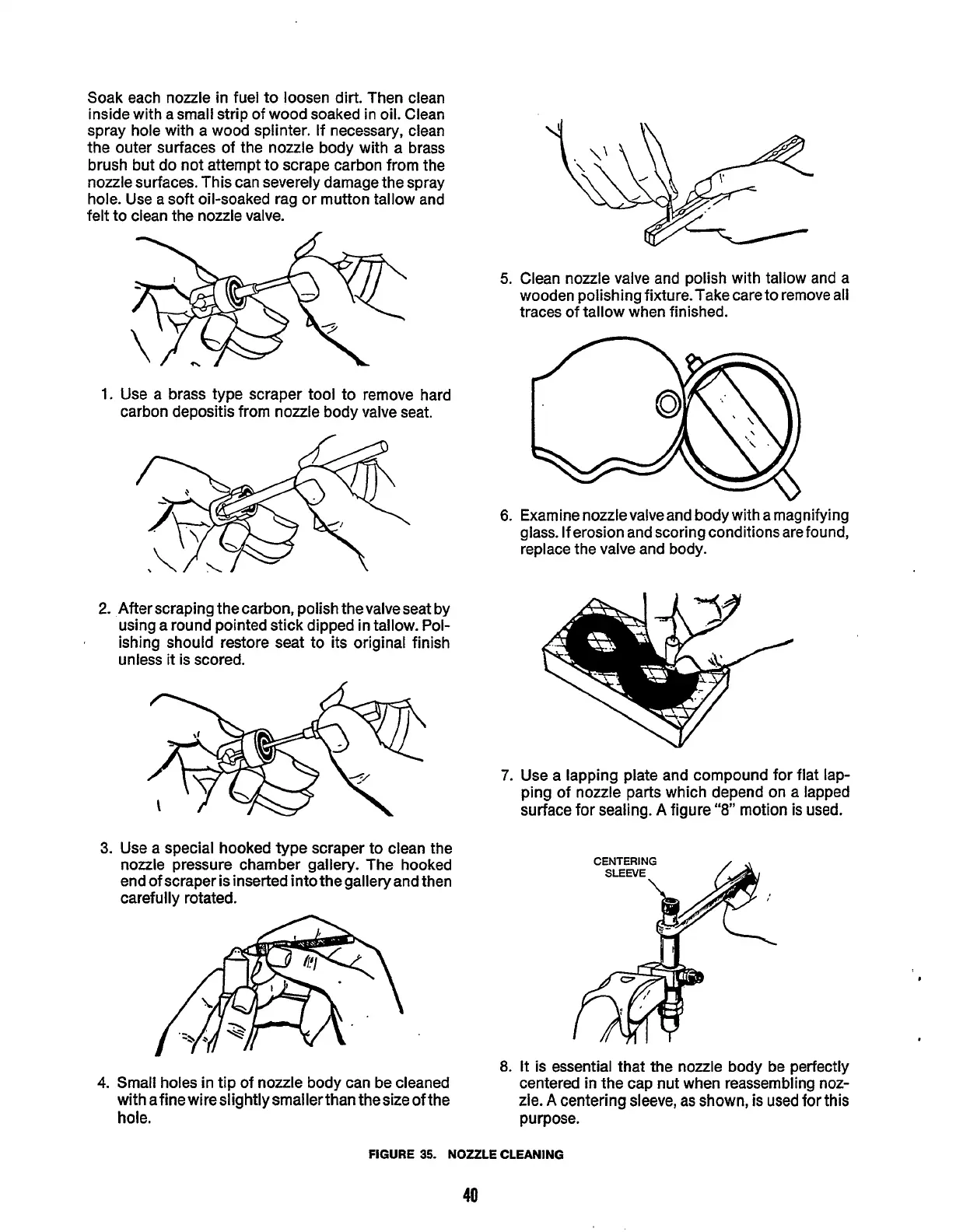Soak each nozzle
in
fuel to loosen dirt. Then clean
inside with a small strip of wood soaked in oil. Clean
spray hole with a wood splinter. If necessary, clean
the outer surfaces of the nozzle body with a brass
brush but
do
not attempt to scrape carbon from the
nozzle surfaces. This can severely damage the spray
hole. Use a soft oil-soaked rag or mutton tallow and
felt to clean the nozzle valve.
1.
Use a brass type scraper tool to remove hard
carbon depositis from nozzle body valve seat.
2. After scraping thecarbon, polish the valve seat by
using a round pointed stick dipped in tallow.
Pol-
ishing should restore seat to its original finish
unless
it
is scored.
-
3.
Use a special hooked type scraper to clean the
nozzle pressure chamber gallery. The hooked
end of scraper is inserted into the gallery and then
carefully rotated.
4.
5.
Clean nozzle valve and polish with tallow and a
wooden polishing fixture. Take care to remove all
traces of tallow when finished.
6.
Examine nozzlevalveand body with a magnifying
glass. If erosion and scoring conditions are found,
replace the valve and body.
7.
Use a lapping plate and compound for flat lap-
ping of nozzle parts which depend on a lapped
surface for sealing. A figure
“8”
motion is used.
8.
It
is essential that the nozzle body be perfectly
centered in the cap nut when reassembling noz-
zle.
A
centering sleeve,
as
shown,
is
used for this
Small holes in tip of nozzle body can be cleaned
with
afinewireslightlysrnallerthan
thesizeofthe
hole.
purpose.
FIGURE
35.
NOZZLE CLEANING
40
Redistribution or publication of this document,
by any means, is strictly prohibited.
